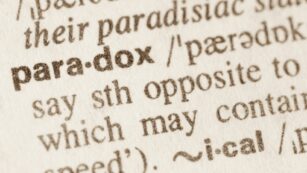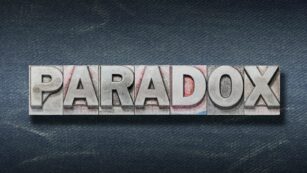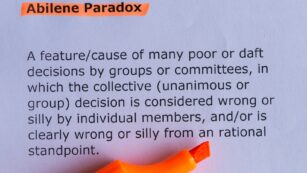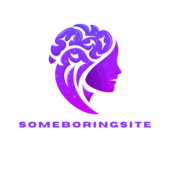
Delving into the world of literature often unveils intriguing literary devices that add depth and complexity to storytelling. One such device that captivates readers and challenges conventional thinking is the paradox. As a writer, I’ve come to appreciate What is Paradox in literature injects a sense of enigma and contradiction into narratives, sparking intellectual curiosity and prompting readers to ponder deeper meanings.
In literature, paradoxes are not mere contradictions but rather thought-provoking statements that reveal hidden truths or complexities. They create a sense of tension that keeps the audience engaged and encourages them to unravel the layers of meaning within a text. Through my exploration of paradoxes in literature, I’ve discovered how these seemingly conflicting ideas can coexist harmoniously, enriching the narrative and leaving a lasting impact on readers’ perspectives.
What is Paradox in Literature
Definition of Paradox
 What is Paradox in literature? refers to the use of contradictory concepts or elements that reveal a deeper truth, defy logic, or create an intriguing situation for the reader. It involves the juxtaposition of seemingly contradictory concepts within a narrative, challenging readers’ expectations and inviting them to ponder the underlying meaning. Paradoxes in literature often serve to emphasize themes, add complexity to characters, or highlight the ambiguous nature of reality. They are literary devices that play with language and thought to create intellectual engagement and evoke a sense of mystery.
What is Paradox in literature? refers to the use of contradictory concepts or elements that reveal a deeper truth, defy logic, or create an intriguing situation for the reader. It involves the juxtaposition of seemingly contradictory concepts within a narrative, challenging readers’ expectations and inviting them to ponder the underlying meaning. Paradoxes in literature often serve to emphasize themes, add complexity to characters, or highlight the ambiguous nature of reality. They are literary devices that play with language and thought to create intellectual engagement and evoke a sense of mystery.
The Purpose and Effects in Literary Works
In literary works, What is Paradox in literature serves multiple purposes. They can provoke thought, stimulate imagination, and prompt readers to reevaluate their understanding of the text. By presenting conflicting ideas in a harmonious manner, paradoxes challenge readers to think critically and explore different interpretations. The use of paradoxes can also enhance the emotional impact of a story, creating tension and depth in the narrative. Moreover, paradoxes can contribute to the irony and complexity of characters, adding layers to their personalities and motivations. Overall, paradoxes in literature enrich storytelling by introducing layers of meaning and inviting readers to engage with the text on a deeper level.
Examples of Paradox in Classical Literature
Shakespeare’s Use of Paradox
 In Shakespeare’s works, What is Paradox in literature devices used to convey complex ideas and emotions. Exploring contradiction and irony, Shakespeare masterfully employs paradoxes to highlight the dualities inherent in human nature. Highlighting the interplay between appearance and reality, one of Shakespeare’s famous paradoxes is from “Hamlet”: “I must be cruel only to be kind.” This paradox captures the complex nature of tough love and the idea that sometimes harsh actions are necessary for a greater good. Shakespeare’s use of paradoxes adds depth to his characters and themes, inviting readers to ponder profound truths.
In Shakespeare’s works, What is Paradox in literature devices used to convey complex ideas and emotions. Exploring contradiction and irony, Shakespeare masterfully employs paradoxes to highlight the dualities inherent in human nature. Highlighting the interplay between appearance and reality, one of Shakespeare’s famous paradoxes is from “Hamlet”: “I must be cruel only to be kind.” This paradox captures the complex nature of tough love and the idea that sometimes harsh actions are necessary for a greater good. Shakespeare’s use of paradoxes adds depth to his characters and themes, inviting readers to ponder profound truths.
Paradox in Romantic Poetry
Paradoxes are integral to the essence of Romantic poetry, blending logic with emotion to create thought-provoking and evocative verses. Embracing ambiguity and contradiction, Romantic poets often explore the complexities of human experience through paradoxical imagery. One famous example is from John Keats’ “Ode to a Nightingale”: “Darkling I listen; and, for many a time, I have been half in love with easeful Death.” This paradoxical line encapsulates Keats’ contemplation of mortality and the allure of the unknown. Romantic poets’s adept use of paradoxes evokes deep emotions in readers, inviting them to reflect on the enigmatic beauty of life’s paradoxes.
Modern Interpretations of Paradox
Paradox in Contemporary Novels
 What is Paradox in literature in contemporary novels reveals a sophisticated interplay of contradictions that serve to intrigue and challenge readers. In today’s literary landscape, authors deftly wield paradoxes to infuse their narratives with layers of complexity and ambiguity. These contradictions not only spark intellectual curiosity but also serve as a vehicle for authors to unveil profound truths about human nature and society.
What is Paradox in literature in contemporary novels reveals a sophisticated interplay of contradictions that serve to intrigue and challenge readers. In today’s literary landscape, authors deftly wield paradoxes to infuse their narratives with layers of complexity and ambiguity. These contradictions not only spark intellectual curiosity but also serve as a vehicle for authors to unveil profound truths about human nature and society.
Paradox in Modern Poetry
In the realm of modern poetry, paradoxes continue to play a crucial role in captivating readers and eliciting deep emotional resonance. Poets leverage paradoxical statements to create tension, evoke introspection, and illuminate the intricate nuances of the human experience. Through the use of paradoxes, modern poets engage audiences in a dance of contradictions that pushes boundaries, challenges perceptions, and invites contemplation on the enigmatic beauty of life’s complexities.
